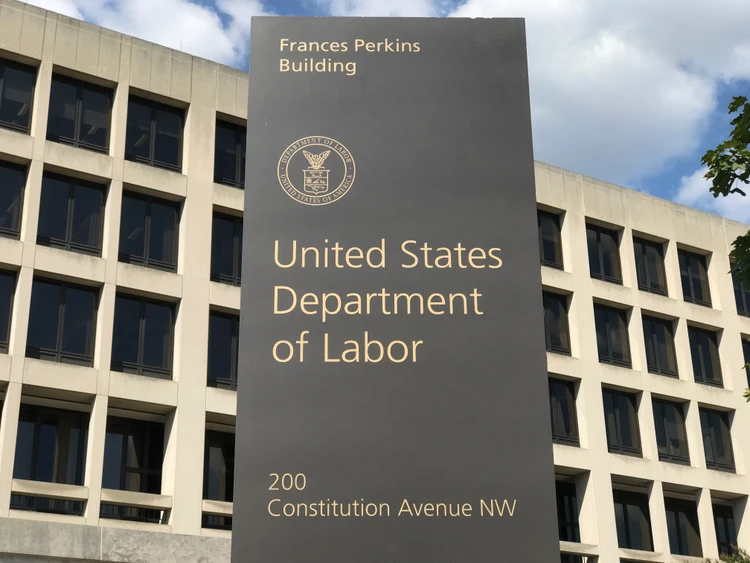The Bureau of Labor Statistics (BLS) has long stood as the nation’s most trusted source of labor market data, guiding decisions by policymakers, economists, investors, and everyday Americans who depend on accurate statistics to understand the economy’s trajectory. But recent scrutiny from the Labor Department’s Inspector General (IG) has cast a spotlight on the very agency that publishes some of the most critical reports shaping financial markets and national debates. This investigation raises important questions about transparency, data accuracy, and the independence of government statistics in an era of growing skepticism toward institutions.
- The Role of the Bureau of Labor Statistics
- Why the Inspector General’s Probe Matters
- Public Trust in Government Statistics
- How BLS Collects and Verifies Data
- Historical Context: Past Controversies Over Data
- Economic and Political Implications of the Probe
- What Reforms Might Follow
- Expert Perspectives
- Global Comparisons: How Other Nations Handle Statistics
- The Broader Debate About Data in a Digital Age
- FAQs
- Why is the Inspector General investigating the Bureau of Labor Statistics?
- What impact could the probe have on financial markets?
- Has the Bureau of Labor Statistics faced scrutiny before?
- What reforms might result from the investigation?
- How do other countries handle statistical integrity?
- Conclusion
The focus on the BLS comes at a pivotal moment when economic uncertainty remains high. Inflation concerns, debates about wage growth, and the lingering impacts of the pandemic on employment patterns have all placed enormous weight on the agency’s monthly jobs reports and inflation data. Any suggestion of irregularities or internal weaknesses in how these numbers are collected and released has the potential to shake public confidence and even affect global markets. To fully grasp the stakes of this probe, it is essential to understand not only what the Inspector General is investigating but also how the BLS operates, why its data is so influential, and what reforms might be on the horizon.
The Role of the Bureau of Labor Statistics
Founded in 1884, the Bureau of Labor Statistics is one of the oldest statistical agencies in the federal government. Its mission is to collect, analyze, and disseminate essential economic data covering employment, wages, inflation, productivity, and working conditions. Reports such as the monthly Employment Situation Summary, which announces job creation figures and unemployment rates, often dominate headlines and influence political narratives.
The data produced by the BLS does not just inform academic debates. It shapes the Federal Reserve’s monetary policy decisions, guides businesses in hiring strategies, and provides workers and families with a sense of the economy’s health. Investors in particular watch BLS releases closely, as a surprisingly strong or weak jobs report can swing stock markets, bond yields, and currency valuations.
Because of this enormous impact, the accuracy and independence of BLS data is paramount. Even a small error or perception of bias could undermine trust and ripple through the economy in unforeseen ways.
Why the Inspector General’s Probe Matters
The Labor Department’s Inspector General acts as an internal watchdog, tasked with preventing waste, fraud, and abuse within the department and its agencies. When the IG turns its attention to the BLS, it signals concerns that could range from methodological issues to possible mishandling of data.
Although details of the current probe remain limited, reports suggest the investigation is examining whether BLS processes are sufficiently robust to guarantee accuracy and whether any internal or external pressures may have influenced the reporting of sensitive economic indicators. The IG may also be looking into the use of contractors, the reliability of survey responses, and how BLS ensures confidentiality when collecting household and business data.
Such scrutiny is not without precedent. In past decades, government statistical agencies have occasionally faced accusations of politicization or data manipulation, though direct evidence has rarely been proven. The mere existence of an investigation, however, can stir doubts at a time when trust in institutions is already fragile.
Public Trust in Government Statistics
For decades, Americans largely took official economic data at face value. But in recent years, political polarization and growing misinformation have eroded confidence in government-produced statistics. According to a Pew Research Center survey, only about one-third of Americans say they trust government data “a great deal,” compared to more than half in the late 20th century.
This skepticism has been amplified by the high stakes of recent policy debates. When inflation surged after the pandemic, critics accused official measures of underestimating price pressures. Similarly, unemployment figures have at times been criticized for not capturing underemployment or workers who have dropped out of the labor force.
In this environment, the Inspector General’s probe takes on added weight. Even if the BLS is ultimately cleared of wrongdoing, the investigation itself reinforces the perception that government statistics deserve more scrutiny. On the other hand, if weaknesses are uncovered, the fallout could be profound, forcing reforms and possibly changing the way the nation interprets its economic health.
How BLS Collects and Verifies Data
Understanding the BLS methodology sheds light on why the agency is both highly respected and sometimes misunderstood.
- Household Survey (Current Population Survey): This survey of about 60,000 households forms the basis of unemployment statistics. Participants answer questions about employment status, hours worked, and job searches.
- Establishment Survey (Current Employment Statistics): Covering roughly 122,000 businesses and government agencies, this survey tracks payroll employment, hours, and earnings.
- Consumer Price Index (CPI): Compiled from data collected in 75 urban areas, this index measures inflation by tracking changes in the prices of a basket of goods and services.
Each of these programs involves complex sampling techniques, weighting adjustments, and quality checks. The BLS insists on transparency, publishing methodology notes and error margins. Still, the complexity of these processes makes them vulnerable to misunderstanding and, potentially, to manipulation if safeguards are not strong.
Historical Context: Past Controversies Over Data
The idea of manipulating labor statistics is not new. In the 1970s, critics accused the Nixon administration of pressuring the BLS to downplay inflation figures. During the Obama administration, conspiracy theories emerged claiming that the unemployment rate was deliberately lowered ahead of the 2012 election. Though no credible evidence supported these claims, they highlight how political stakes can fuel suspicion.
More recently, the COVID-19 pandemic exposed limitations in existing surveys. Misclassification errors led to underreporting of unemployment in early 2020, sparking criticism even as the BLS openly acknowledged the issue and published detailed explanations. Such incidents underscore the need for transparency and independent oversight to maintain credibility.
Economic and Political Implications of the Probe
The Inspector General’s investigation comes at a delicate moment. With the Federal Reserve closely monitoring employment and inflation data to guide interest rate decisions, any doubts about the reliability of BLS numbers could complicate monetary policy. Financial markets thrive on certainty, and questions about data integrity could increase volatility.
Politically, the probe may fuel partisan narratives. Some may argue that government agencies are being weaponized or that statistics are being manipulated to favor one administration’s agenda. Others may see the investigation as a healthy sign of accountability. Either way, the findings are likely to shape debates heading into the next election cycle.
What Reforms Might Follow
Should the probe uncover significant weaknesses, several reforms may be considered:
- Enhanced Oversight: Congress could push for greater oversight of statistical agencies, possibly creating independent review boards.
- Improved Methodologies: Investments in technology and data collection methods could reduce errors and improve transparency.
- Clearer Communication: BLS might expand its efforts to explain methodologies in plain language to improve public understanding.
- Statistical Independence: Proposals to insulate statistical agencies from political influence, similar to the independence granted to the Federal Reserve, could gain momentum.
These reforms would not only address immediate concerns but also help restore long-term trust in government statistics.
Expert Perspectives
Economists and data experts have weighed in on the importance of the probe.
“Without trust in our statistical agencies, the entire economy suffers,” said Dr. Laura Simmons, a labor economist at Georgetown University. “Markets need reliable data to function, and policymakers can’t make good decisions if they’re second-guessing the numbers.”
Former BLS commissioner Erica Groshen has emphasized that while no system is perfect, the agency’s culture is deeply committed to professional standards. “The integrity of the data is the lifeblood of the BLS,” she noted in a recent interview. “Any weaknesses identified by the Inspector General should be addressed quickly, but we must avoid politicizing what has historically been a gold standard for economic data.”
Global Comparisons: How Other Nations Handle Statistics
The United States is not alone in facing questions about statistical integrity. In Greece, manipulated economic data contributed to the financial crisis of the late 2000s. In Argentina, inflation statistics were widely discredited under government interference. These examples serve as cautionary tales, illustrating how compromised statistics can lead to disastrous economic consequences.
By contrast, countries like Canada and the United Kingdom have established independent statistical authorities to safeguard credibility. These models may inspire U.S. reforms if the current probe reveals vulnerabilities in the BLS framework.
The Broader Debate About Data in a Digital Age
The IG’s probe also highlights a broader challenge: the role of data in the modern economy. As technology transforms how information is collected and shared, government agencies face both opportunities and risks.
On one hand, big data, artificial intelligence, and real-time analytics could enhance the accuracy of labor statistics. On the other, privacy concerns, cyber threats, and the spread of misinformation complicate the environment in which official data is received and interpreted.
The probe into the BLS is thus not just about one agency—it is about the future of trustworthy information in a democracy increasingly shaped by numbers.
FAQs
Why is the Inspector General investigating the Bureau of Labor Statistics?
The Labor Department’s Inspector General is examining whether the BLS has sufficient safeguards to ensure the accuracy and independence of its economic data. This includes potential concerns about methodology, data handling, and possible external pressures.
What impact could the probe have on financial markets?
Since BLS data heavily influences Federal Reserve policy and investor decisions, any doubts about its reliability could increase market volatility and affect confidence in U.S. economic indicators.
Has the Bureau of Labor Statistics faced scrutiny before?
Yes, throughout history there have been accusations of politicization or methodological flaws, though credible evidence of manipulation has been rare. Past controversies highlight the importance of transparency and oversight.
What reforms might result from the investigation?
Potential reforms include stronger oversight, updated data collection methods, clearer public communication, and measures to protect the agency’s independence from political influence.
How do other countries handle statistical integrity?
Some nations, like Canada and the United Kingdom, have independent statistical authorities that operate outside political influence. Others, such as Argentina in the past, have faced credibility crises when government interference undermined official statistics.
Conclusion
The Inspector General’s probe into the Bureau of Labor Statistics is more than an internal review—it is a moment of reckoning for one of the most important institutions in American economic life. At a time when trust in government is strained and misinformation spreads rapidly, ensuring the accuracy and independence of labor statistics is not a technical issue but a democratic necessity. Whether the investigation uncovers flaws or confirms the agency’s resilience, the outcome will carry significant implications for markets, policymakers, and the public. The BLS sits at the intersection of data and democracy, and the integrity of its work remains a cornerstone of economic stability.








